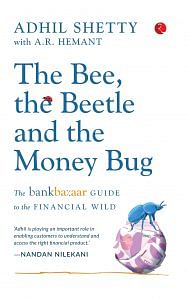It does not take much to get a credit score of 800. It is not rocket science. Timely repayment is enough. However, there are other things that help, too.
Prince, a Wealth Warrior from Bengaluru, has a strategy to keep his credit score high by using his credit card. We can learn from his example:
1. Always pay dues and EMIs on time. If you cannot pay the entire dues, at least pay the minimum. Avoid missing even a single payment and that will positively impact your credit score. A few years ago, Prince used to be wayward with the repayments of his dues. He took care of it later and automated his credit card payments. He instructed his bank to clear his dues before the deadline. He has never been late since then.
2. Avoid spending more than 30 per cent of your spending limit. A high credit utilization ratio (CUR) moderately hurts credit score. What is CUR? It is the per centage
of your available spending limit in a month.
Let us say you had two credit cards, each with a spending limit of 1 lakh. You spent 55,000 on one card and 75,000 on another. Your total spend is 1.3 lakh out of a total limit of 2 lakh, so your CUR is 65 per cent. This is very high. It will pull your score down. Keep it to 30 per cent or less, and do not forget the first rule: always pay the dues on time.
3. Try paying in full. If you keep paying minimum amount due, your dues will keep increasing because interest adds up. If the dues increase, your CUR increases,
which we know is bad for your score.
4. Hold on to your credit card. Do not cancel it unless necessary. The older your credit card is, the better it is for your credit score. It shows you have held on to this credit line for many years without getting into trouble with it. That shows creditworthiness. It might be possible you do not like your card and want a better one. You could just ask your bank for an upgraded card with better benefits. That is what Prince did. He cited his credit discipline, increased income and relationship with the bank to get an upgraded card. Had the bank
not agreed to his request, he would have simply got himself an additional card from another bank.
5. Do not apply for too many credit cards or loans in a short span of time. Select one option thoughtfully as per your eligibility and apply for it. Each time you apply for a credit line, the lender checks your credit history. This is called a ‘hard’ check of your credit score.
Each hard check mildly lowers your score. Several hard checks can substantially lower your score.
6. Use your credit card. Do not just keep it in your wallet. An active credit life with timely and full repayment will improve your score bit by bit, and provide you rewards, deals and discounts, which other modes of payment may not.
7. Do a monthly ‘soft’ check to track your credit score progress. Soft checks are your own credit score checks and can be done as many times as you want. Soft checks do not harm your score. Monthly checks are also important because they can help you identify errors
in your credit report, which can then be flagged to your lender and credit bureau. Errors can also damage your score.
Your credit score as well as all loan accounts are linked to your PAN. If someone were to fraudulently or erroneously use your PAN to take a loan, the loan would get tagged to you. If there would be a default on this loan, your credit score would suffer. Errors flagged
to the credit bureau and lender must be rectified.
8. Do not take the option to ‘settle’ your loan or credit card dues. This option is given by banks to defaulting borrowers unable to pay their dues for any reason. Through it, the bank asks you to pay a fraction of your dues towards interest and principal, and consider the loan account settled. For example, suppose you defaulted on dues of 4 lakh and the bank asked you to pay 1 lakh to end the matter. It sounds like an easy way out. But taking this option will destroy your credit score. The settlement will become the basis for rejection of your future loan applications. The settlement will underscore your inability to service past loans. Lenders will see you as a high-risk borrower.
Therefore, aim to pay your dues in full, even if you are not on time. The only acceptable account status from the point of view of your credit score is ‘closed’. It means the loan principal and interest were paid in full.
Credit cards are a double-edged sword. Use them badly and they will wreck your finances and your credit score. Use them well following the above eight points and they will help you develop financial clout.
Before BNPLs, using credit cards was the only way you could build your credit score without paying interest, which means repaying your dues on time. The clout of a great credit score will help you to keep borrowing at favourable terms, be it for buying a house or a car or
anything else, propelling you towards Serenity.
 This excerpt from The Bee, the Beetle, and the Money Bug by Adhil Shetty with A R Hemant has been published with permission from Rupa Publications.
This excerpt from The Bee, the Beetle, and the Money Bug by Adhil Shetty with A R Hemant has been published with permission from Rupa Publications.



